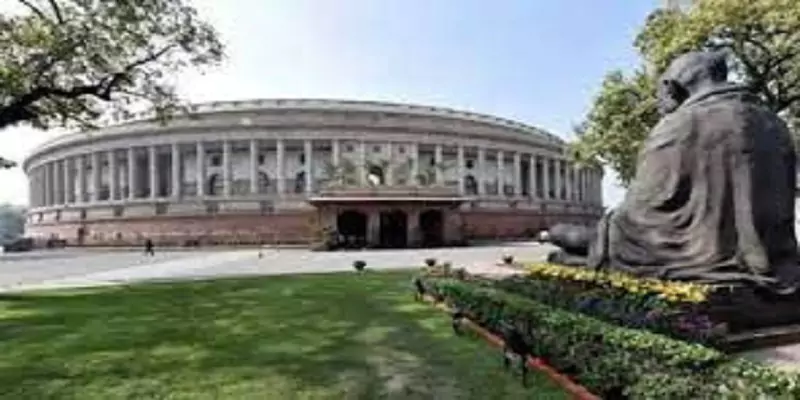2001 Indian Parliament Attack and its Ripple Effect on India-Pakistan Relations
Terrorism is a threat that has plagued the contemporary world for the last couple of years. Its goal is to create invisible terror to achieve end goals. Similar goals are the main motive behind implementing a plot to launch an attack at the Indian Parliament that had grave consequences for the bilateral relations between India and Pakistan, which sank when the terrorist group struck on December 13, 2001. It brought about disaster for the region when war clouds began hovering over it again.
On December 13, 2001, on a Thursday, the central chamber of the Parliament was crowded with daily work. At that time of day, more than 250 lawmakers and certain ministers were also in the building of the Parliament, but nobody knew what was happening out there. Five militants armed with guns entered the premises of the Parliament in New Delhi and fired. Three of them were killed at the point of attack. As they fought, even though the terrorists died, one of them, who had been a suicide bomber, exploded himself. Twelve people were killed, and 22 more were wounded. Fortunately, the members of Parliament and ministers were spared. Police later arrested four suspects on accusations of aiding in the attack. The leaders of the world and the heads of Pakistan also condemned the assault on Parliament.
The attack seemed to be fortunate for India's foreign policy, as the events that followed suggest. Two aspects deserve mention. First, there was the fact that the Taliban regime was the most sought-after by the U.S. government. It also provided a means of exploiting Indians because Pakistan was close to the Taliban regime. India made the most of the situation, gaining an unexpected opportunity to capitalize on Pakistan's ties with the Taliban by presenting the country as a supporter of terrorists. Second, the Indian government wanted to use the windfall fruit against the struggle for freedom in Kashmir to accuse Pakistan of supporting terrorism in Kashmir. Pakistan was gaining recognition as a frontline, and a crucial U.S. ally in the fight against terror, by supporting attacks on Afghanistan. They were in dire need of not just changing the international criticism of terrorism in Pakistan but also ensuring that the Kashmiri militants and liberation movement, and other organizations were branded globally as terrorist groups instead of pursuing self-determination. This was the first time in the past three decades that they asked a high-ranking official in Pakistan to quit the country. The ban also stopped communication between the two countries, particularly train and bus services. Pakistan was not allowed to use Indian airspace.
But the real issue was to come after both countries began mobilizing their troops within one week after the incident. The two countries, India and Pakistan, have prepared their forces for a bloody conflict. On a diplomatic level, Indian diplomacy yields fruitful results with the international community on its side. On December 25, the U.S. responded by declaring the two Kashmiri militant groups terrorist groups. This U.S. brand of this group was India's highly aspired position that the support for Kashmiri militants was Kashmiri combatants, and the organization was illegal and not legitimate. Since then, the term "cross-border terrorists" has been adopted. Following the incident, it became integral to the Indian diplomatic statement about the Kashmir dispute. The situation was similar, and Indians did not have the luxury of labelling the Kashmiri liberation struggle as terrorism. Kashmiri freedom struggle into a terrorist. The Lahore declaration, issued by Indian Premier Vajpayee and his Pakistani counterpart, is a testament to this. But, after the 9-11 attacks, the global scene changed. The gulf between terrorism and the freedom struggle disappeared, which helped India to portray herself as the victim of terrorist attacks instead of the oppressor of innocent Kashmiri people.
Indian Parliament aggressions were the primary reason that brought the subcontinent to the verge of war. In the aftermath, they began an insurgency following the attack on Kashmir to crush the opposition. She brought several Taliban prisoners from Afghan jails due to their alliance with the Warlords' Alliance. Northern Alliance, Killed them in fake encounters, claiming to be captured in Kashmir during terrorist conduction operations. The same kind of false encounters has become a common phrase within Kashmir with the hopes of a bright future for soldiers. India has blamed Pakistan as the cause of insurgency in Kashmir and treated Kashmir as a separate issue. But, there was no definitive evidence for a claim of this kind. In reality, the Indians Supreme Court declared in 2005 that allegations of having a Pakistani connection were not substantiated. The court's ruling refers to five unknown armed individuals who attacked the Indian Parliament and had nothing to do with Pakistan.
Thus, the terrorist attack proved quite disastrous for the relationship between India and Pakistan. Pakistan has been put off the table because its foreign policy was forced to confront serious issues. It was left alone in the mix of nations due to her image as a person who was committed to the terrorists who operate across borders. The threat of war seemed to be lurking on the horizon, but this was fortunate enough to be avoided. It is plausible to conclude that the nature of relations between neighbours is extraordinarily fragile and may cause war in the same way as what happened following the attack on the Parliament.

